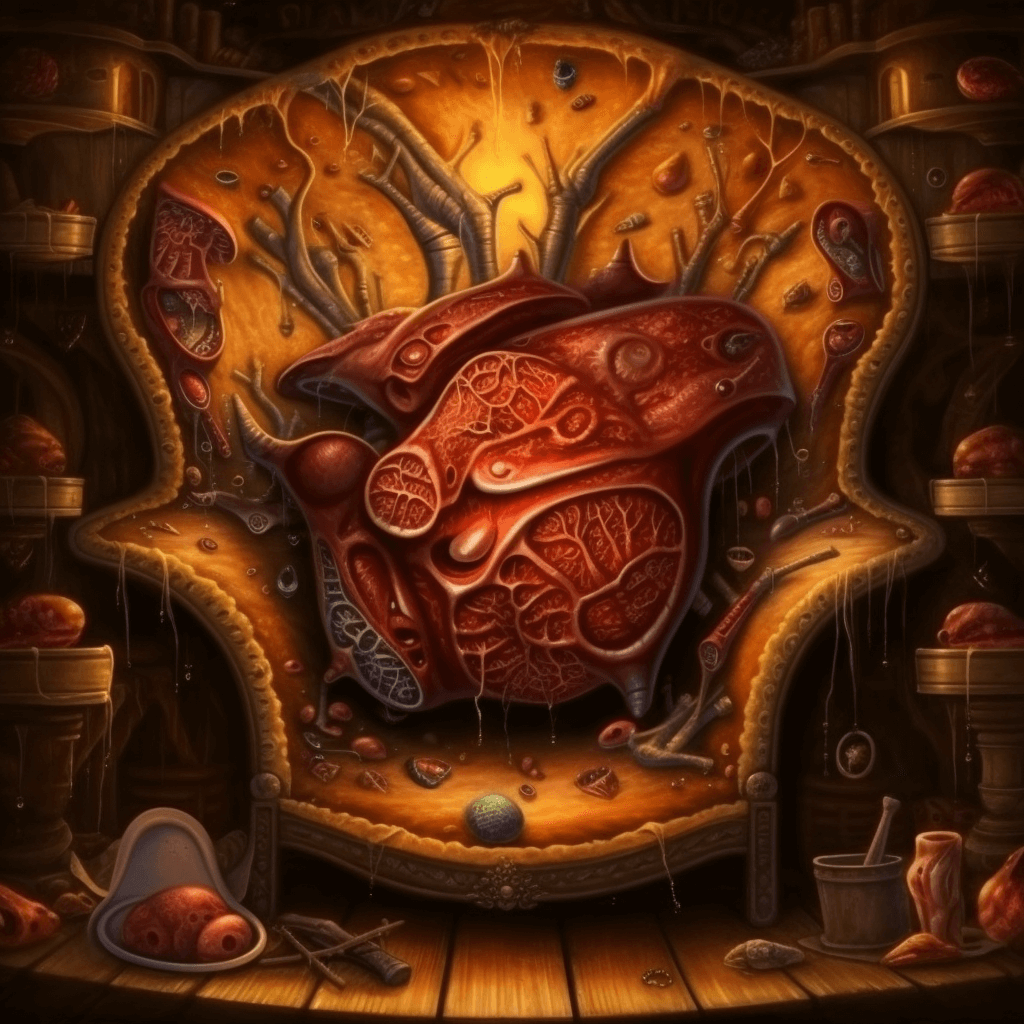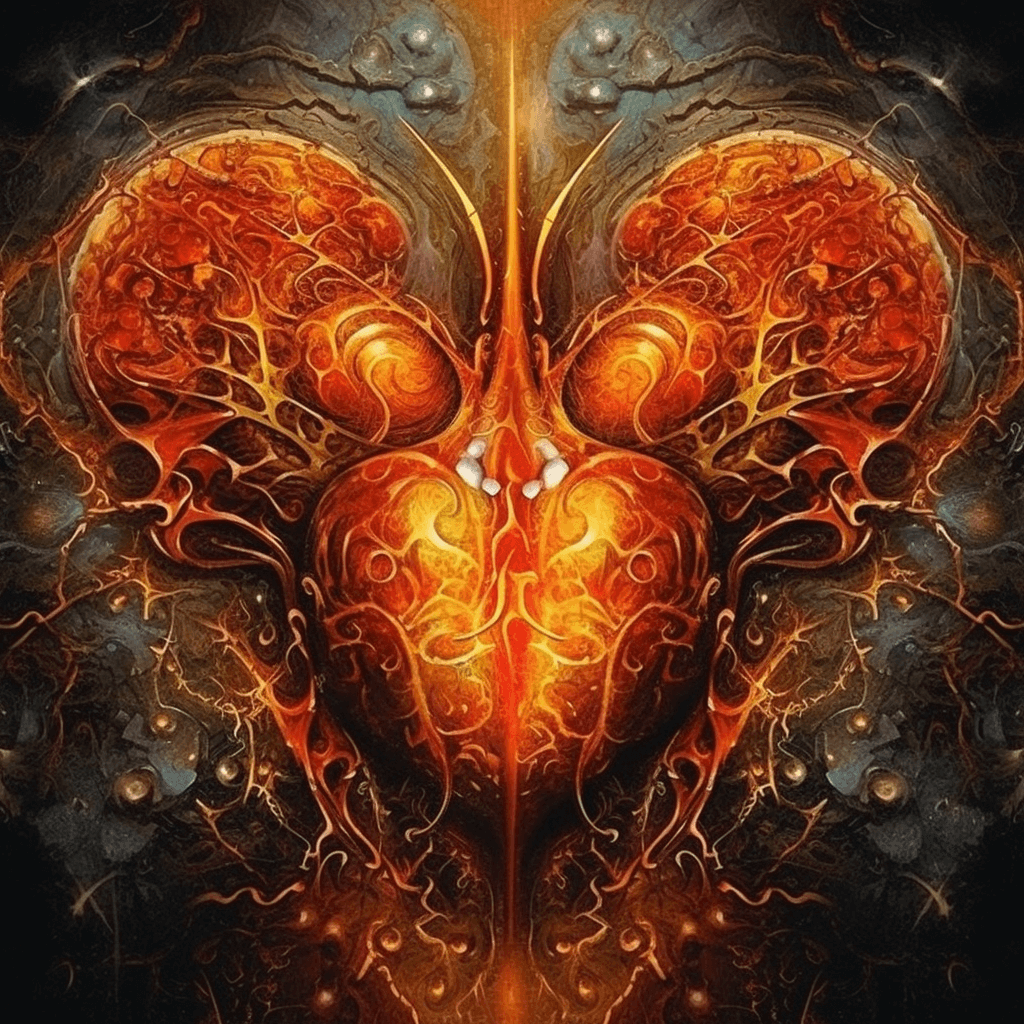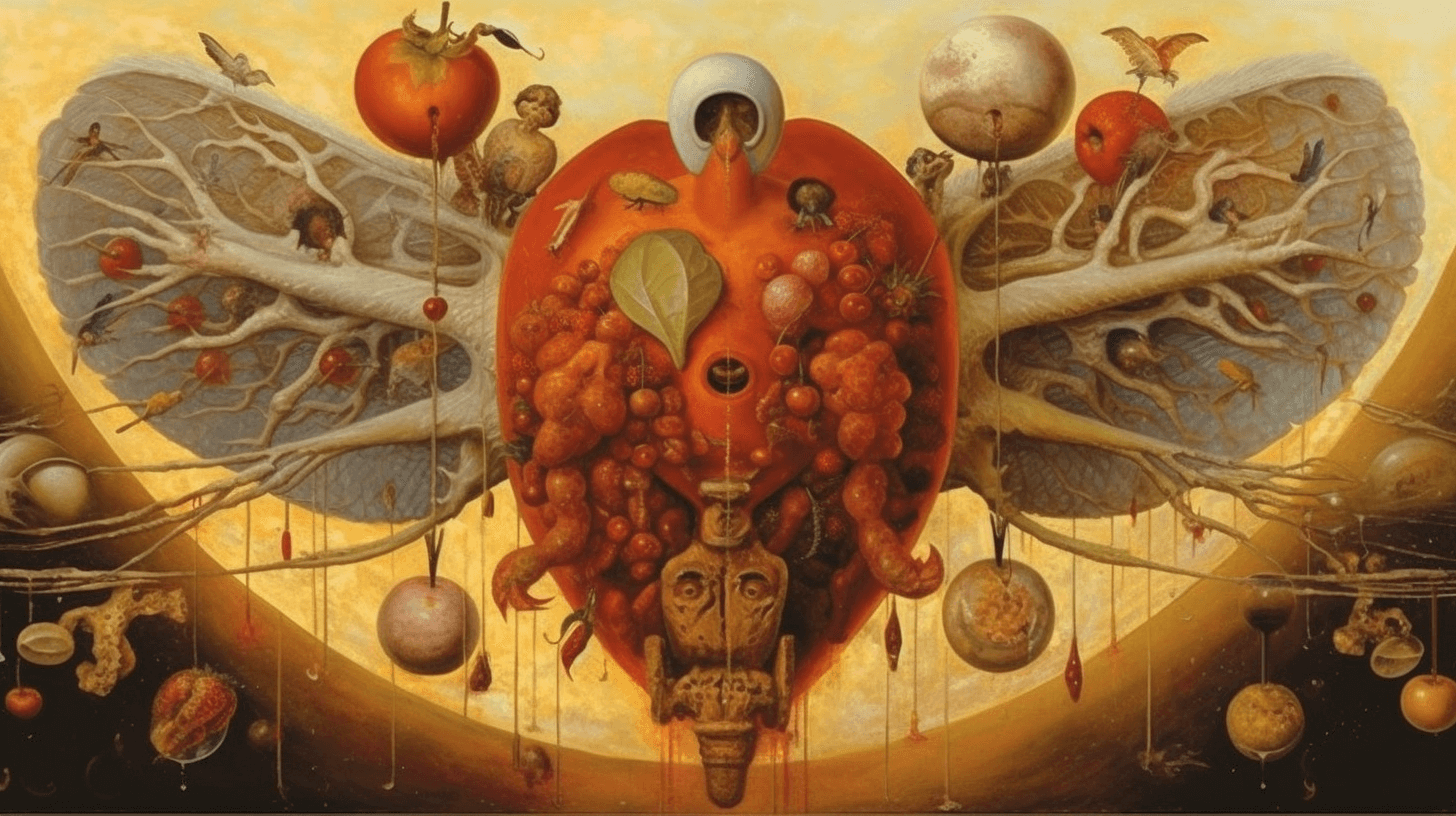The Liver Symbolism
In symbolism and mythology, the liver, like other organs of the body, can have several meanings. It’s important to note that the symbolic meaning of the liver can vary greatly depending on the cultural and historical context. Here are a few examples:
Source of Life and Vitality

The liver is one of the largest and most vital organs in the human body. It performs numerous essential functions, including detoxification, protein synthesis, and the production of biochemicals necessary for digestion. Symbolically, it can represent life, vitality, and health.
Seat of Emotions and Desires

In many ancient cultures, the liver was believed to be the seat of emotions and desires. For instance, in ancient Greek and Roman cultures, the liver was thought to be the seat of passion and love.
Divination

In ancient Mesopotamia, haruspicy was the practice of divining the future by inspecting the liver and other entrails of sacrificed animals. The liver’s shape, color, and condition were all thought to contain messages from the gods about future events.
Suffering and Punishment

In Greek mythology, Prometheus was punished by Zeus for stealing fire and giving it to humans. His punishment was to be chained to a rock, and each day an eagle (the symbol of Zeus) was sent to eat his liver, which would then regenerate overnight to be eaten again. This could symbolize the liver as a source of endless suffering or the consequences of transgressing divine law.







